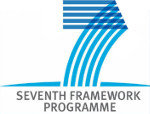Testing emotional eating style in relation to willingness to pay for nutritional claims
López-Galán, Belinda (Universidad de Zaragoza) ; De-Magistris, Tiziana (Universidad de Zaragoza)
Resumen: In face of the high prevalence of non-communicable diseases, nutritional claims represent a useful tool to help people to make healthier food choices. However, recent research notes that when some people experience an intense emotional state, they increase their food consumption, particularly of energy-dense and sweet foods. In consequence, this study aims to assess whether emotional eating (EE) style influences the purchase of food products carrying these claims. To this end, a real choice experiment (RCE) was conducted with 306 participants who were asked to evaluate different types of toast. An error component random parameter logit (ECRPL) was used to analyze their preferences for reduced-fat and low-salt claims toast and the effects of the variation of the EE score on individual preferences. Findings of this study suggest that emotional eating negatively impacts purchasing behavior related to nutritional claims. In particular, a decrease of the willingness to pay between 9% and 16% for every unit of toast with nutritional claims was noted when an increase of EE individual score was registered. In this regard, to increase the effectiveness of the nutritional claims, policymakers and private sectors should consider the management of individuals’ emotional states in designing public health policies and marketing strategies, respectively.
Idioma: Inglés
DOI: 10.3390/nu11081773
Año: 2019
Publicado en: Nutrients 11, 8 (2019), 1773 [16 pp.]
ISSN: 2072-6643
Factor impacto JCR: 4.546 (2019)
Categ. JCR: NUTRITION & DIETETICS rank: 17 / 89 = 0.191 (2019) - Q1 - T1
Factor impacto SCIMAGO: 1.329 - Nutrition and Dietetics (Q1) - Food Science (Q1)
Financiación: info:eu-repo/grantAgreement/EC/FP7/332769/EU/Fighting against obesity in Europe: The role of health related-claim labels in food products/OBESCLAIM
Tipo y forma: Artículo (Versión definitiva)
Área (Departamento): Área Econom.Sociol.Polit.Agra. (Dpto. CC.Agrar.y Medio Natural)
Área (Departamento): Área Fund. Análisis Económico (Dpto. Análisis Económico)
 Debe reconocer adecuadamente la autoría, proporcionar un enlace a la licencia e indicar si se han realizado cambios. Puede hacerlo de cualquier manera razonable, pero no de una manera que sugiera que tiene el apoyo del licenciador o lo recibe por el uso que hace.
Debe reconocer adecuadamente la autoría, proporcionar un enlace a la licencia e indicar si se han realizado cambios. Puede hacerlo de cualquier manera razonable, pero no de una manera que sugiera que tiene el apoyo del licenciador o lo recibe por el uso que hace.
Exportado de SIDERAL (2021-12-01-11:34:53)
Visitas y descargas
Idioma: Inglés
DOI: 10.3390/nu11081773
Año: 2019
Publicado en: Nutrients 11, 8 (2019), 1773 [16 pp.]
ISSN: 2072-6643
Factor impacto JCR: 4.546 (2019)
Categ. JCR: NUTRITION & DIETETICS rank: 17 / 89 = 0.191 (2019) - Q1 - T1
Factor impacto SCIMAGO: 1.329 - Nutrition and Dietetics (Q1) - Food Science (Q1)
Financiación: info:eu-repo/grantAgreement/EC/FP7/332769/EU/Fighting against obesity in Europe: The role of health related-claim labels in food products/OBESCLAIM
Tipo y forma: Artículo (Versión definitiva)
Área (Departamento): Área Econom.Sociol.Polit.Agra. (Dpto. CC.Agrar.y Medio Natural)
Área (Departamento): Área Fund. Análisis Económico (Dpto. Análisis Económico)
Exportado de SIDERAL (2021-12-01-11:34:53)
Enlace permanente:
Visitas y descargas
Este artículo se encuentra en las siguientes colecciones:
Artículos
Registro creado el 2019-12-12, última modificación el 2021-12-01
